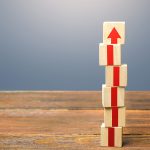In the last decade, there has been interesting research examining attitudes and perceptions of the childfree based on how they are portrayed in educational environments. Researchers Laurie Chancey and Susan Dumais at Louisiana State University did a content analysis on college textbooks and were the first to look at how sociology textbooks portray the “voluntary childless” (this is the term most often used in the textbooks in this study). Here’s some scoop on the research:
They performed content analyses of twenty marriage and family textbooks that were published and widely used in undergraduate sociology courses between 1950 and 2000.
When they studied books from the 50s, not so surprisingly, they found that the attitude toward those who did not have children by choice was not positive; they were seen as “faint at heart” and “not up to the challenge of parenting.”
In the 60s, the words in the textbooks reflected more tolerance, and mostly portrayed this status in the context of marriage. The studies outlined in these textbooks mirror what more research has shown—that the presence or absence of children, or the number of children, does not predict marital happiness. When the Population Bomb by Paul Ehrlich and David Brower hit the shelves, this choice was discussed in more of an environmental context.
In the 1970s, in the textbook, Men, Women, and Change: A Sociology of Marriage and Family, authors Scanzoni and Scanzoni first used the term “childfree” to describe study samples. In it the choice was explained in a positive way, and more from a women’s rights and environmental movement stance:
“[W]ith growing concern about population pressures, food and energy shortages, crowding, and all the related problems of too many people on too small a planet, the accusation of selfishness has been aimed toward a different target. Couples who want the rewards of children in great abundance are the ones who are now likely to be labeled self-indulgent and unconcerned about the good of humanity. Couples who forgo the experience of parenthood may be considered by others to be altruistic.”
In the 80s, there was a spike in scholarly research in textbooks on this subject. It was the time when textbooks introduced the ideas of “early articulators” and “postponers.” Overall, the language used in textbooks had a “tolerant” and “balanced” flavor. For example, the narrative would include statements like, “Despite many people’s beliefs, couples who choose to remain childless are usually neither frustrated nor unhappy,” and “That careers are prioritized and childcare is a burden sounds like a masculine motivation, but it isn’t necessarily so.”
Voluntary childlessness showed up less in textbooks in the 90s, but when it did, it tended to continue what the 80s started in terms of dispelling myths associated with not having children by choice. Textbooks supported the idea that it was brave to go against the norm with this decision. Chancey and Dumais contrast perceptions portrayed in textbooks from the 1950s, when it was considered brave to take on the challenge of raising children. Interestingly, by the 90s, “brave” meant something totally different in this regard; the braver choice was not to have them.
Those in college, or have a reason to get your nose into college textbooks these days, what have you seen about the attitudes and perceptions of the childfree?
This post is an excerpt from my recent book, The Baby Matrix. One chapter gives research highlights on the childfree from the year 2000.





